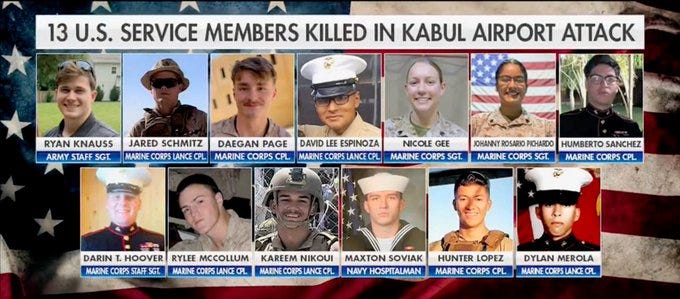After a week of ferrying my Afghan contacts inside Hamid Karzai International Airport (HKIA), I was exhausted. Although my DC hotel was fine, I barely slept. I would crash for a few hours, only to wake up frantically and check my phone to see if I’d missed anything vital.
By 26 August 2021, I had assisted at least 80 Afghan contacts. Nevertheless, I s…
Keep reading with a 7-day free trial
Subscribe to Grumpy Combat Veteran to keep reading this post and get 7 days of free access to the full post archives.



